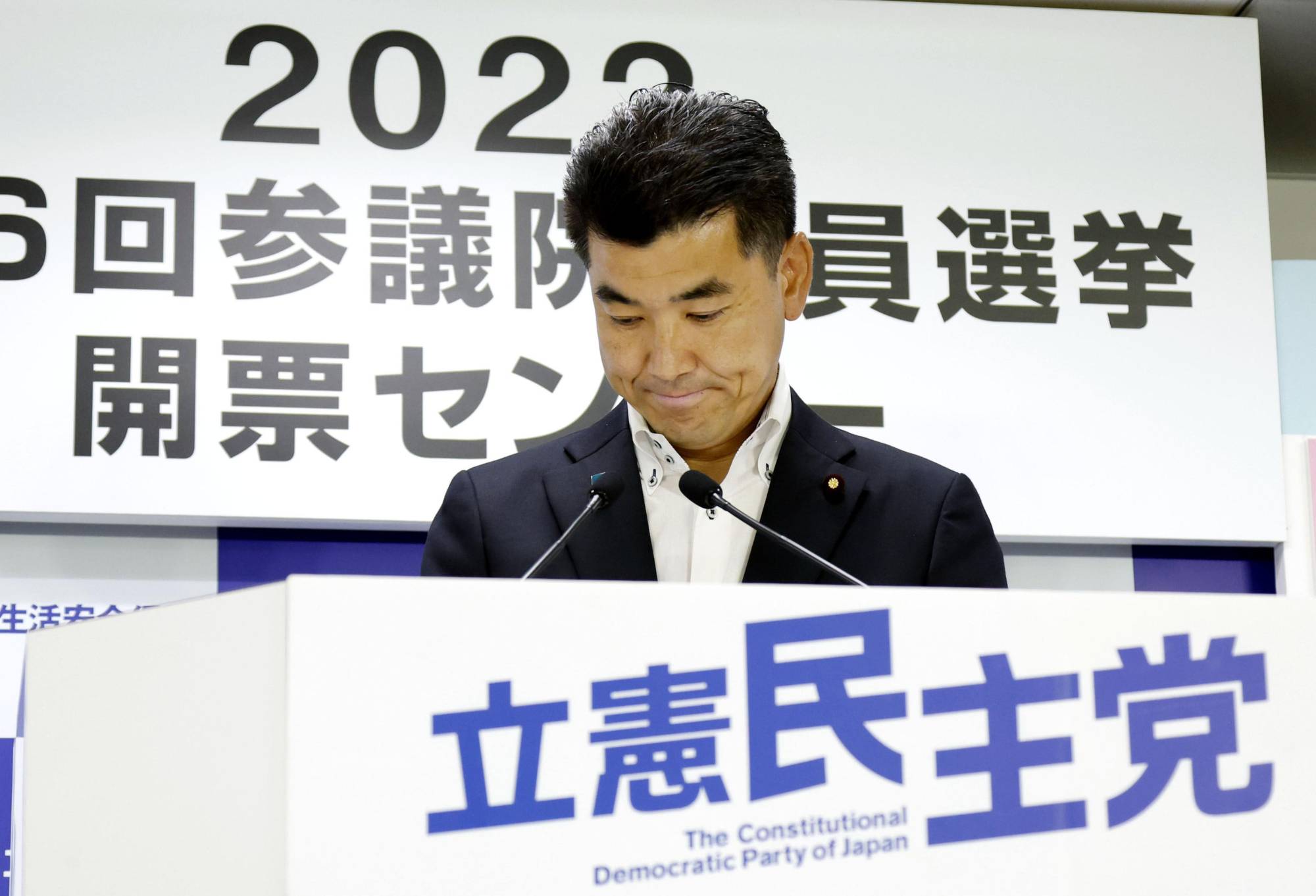Reports from Sunday’s Upper House election all echo the same outcome: a resounding victory for the ruling coalition.
After all, the Liberal Democratic Party and Komeito earned a stable majority and gained a net positive seven seats above their pre-election total — their best showing for an Upper House vote since 2013. Some observers have come to the conclusion that the LDP has succeeded in gaining voter support and renewing its mandate.
But such a conclusion absolves opposition parties of their share of responsibility for this outcome. This should have been a far more contested election than it was, but the opposition once again failed to make the moves necessary to take a real shot at the ruling coalition. Instead, they remain mired in soul-searching that will continue to have implications for Japanese politics. There is an opportunity to rebound in the next year, but only if the opposition parties can find a way to tap into four core elements of the political strategy needed for success.



